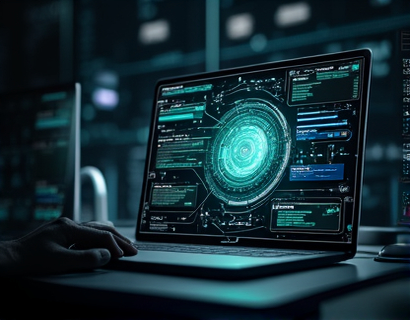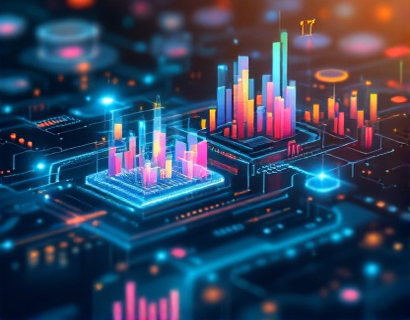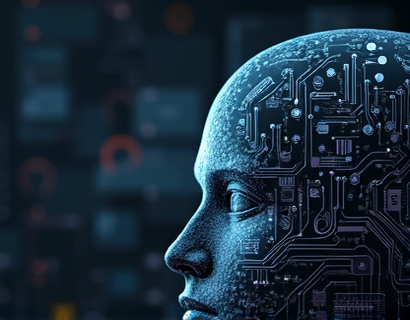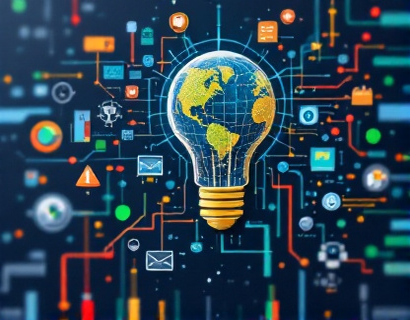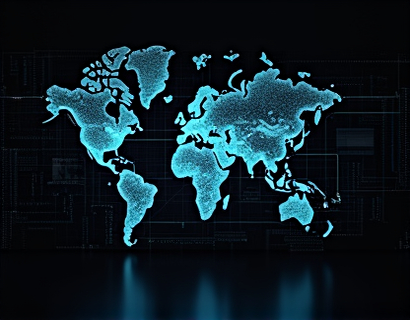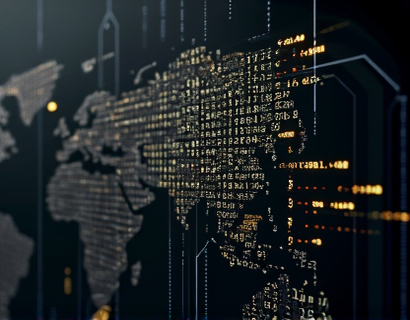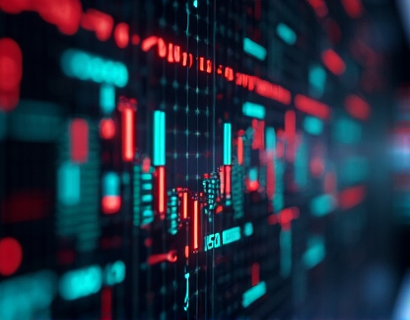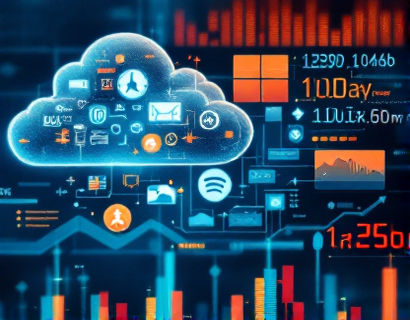Harnessing AI and Crypto: Next-Gen Solutions for Enhanced Digital Productivity and Streamlined Task Management
The integration of Artificial Intelligence (AI) and cryptocurrency is paving the way for a new era of digital productivity and task management. This synergy leverages the strengths of both technologies to create innovative solutions that not only enhance efficiency but also ensure secure and transparent operations. As we delve into this topic, we will explore how AI and cryptocurrency are transforming the digital landscape, offering users unprecedented levels of productivity and streamlined task management.
The foundation of this transformation lies in the unique capabilities of AI. Artificial Intelligence, with its advanced algorithms and machine learning techniques, can process vast amounts of data quickly and accurately. This capability is crucial for task management, where the ability to analyze and prioritize tasks based on real-time data can significantly boost productivity. AI-powered tools can automate routine tasks, provide intelligent recommendations, and even predict future tasks based on user behavior, all of which contribute to a more efficient workflow.
Cryptocurrency, on the other hand, brings a layer of security and decentralization to these solutions. The use of blockchain technology ensures that transactions are transparent, immutable, and secure. This is particularly important in a digital environment where data breaches and cyber threats are increasingly common. By integrating cryptocurrency, these AI-driven tools can offer a secure way to manage and reward users for their contributions, ensuring that incentives are fair and verifiable.
The combination of AI and cryptocurrency creates a powerful ecosystem where each technology complements the other. For instance, AI can be used to optimize the mining process in cryptocurrency, improving efficiency and reducing energy consumption. Conversely, the decentralized nature of cryptocurrency can provide a robust infrastructure for AI applications, ensuring that data is stored and processed in a secure and distributed manner.
Enhanced Task Automation with AI
One of the most significant benefits of AI in task management is automation. AI can automate repetitive and time-consuming tasks, freeing up users to focus on more strategic and creative work. For example, AI-powered virtual assistants can manage calendars, schedule meetings, and even draft emails based on user preferences and past behavior. These assistants can learn from user interactions and adapt to individual work styles, making them increasingly effective over time.
Another area where AI shines is in project management. AI-driven project management tools can monitor progress, identify bottlenecks, and suggest optimizations in real-time. These tools can also predict project outcomes based on historical data, helping managers make informed decisions. By automating these processes, AI not only saves time but also reduces the potential for human error, leading to more reliable and efficient project execution.
Intelligent Task Prioritization
Effective task prioritization is crucial for maintaining high productivity. AI algorithms can analyze various factors such as task urgency, importance, and dependencies to prioritize tasks accurately. This ensures that users focus on the most critical tasks first, maximizing their productivity. Machine learning models can continuously learn from user feedback and adjust priorities accordingly, creating a dynamic and adaptive task management system.
Moreover, AI can help in identifying and grouping similar tasks, allowing users to batch similar activities together. This approach, known as time blocking, can significantly reduce context switching and improve focus. By automating the prioritization process, AI ensures that users are always working on the most impactful tasks, leading to better outcomes and higher satisfaction.
Secure and Transparent Task Collaboration
Collaboration is a key aspect of modern task management, and AI combined with cryptocurrency can enhance this process in several ways. Blockchain technology ensures that all tasks and their statuses are recorded in a transparent and immutable ledger. This means that all team members can have real-time access to the same information, reducing misunderstandings and ensuring accountability.
Cryptocurrency can also play a role in incentivizing collaboration. By using tokens or coins as a form of digital currency, teams can reward members for completing tasks or contributing to the project's success. These tokens can be stored in digital wallets and exchanged for various goods and services, providing a tangible incentive for participation. The use of smart contracts further automates these processes, ensuring that rewards are distributed fairly and automatically based on predefined criteria.
Optimized Resource Allocation
AI and cryptocurrency can also optimize resource allocation in task management. AI algorithms can analyze resource availability, task requirements, and team capabilities to assign tasks to the most suitable individuals or resources. This ensures that resources are used efficiently, reducing waste and improving overall productivity. For instance, AI can identify underutilized team members and assign them tasks that match their skills, or it can recommend external resources if internal capacity is insufficient.
Cryptocurrency can facilitate seamless payment and resource exchange within this optimized system. Smart contracts can automate payments to freelancers or external resources based on task completion, ensuring that payments are made promptly and transparently. This not only streamlines the payment process but also builds trust among collaborators, as all transactions are recorded and verifiable.
Predictive Analytics for Proactive Management
Predictive analytics powered by AI can provide valuable insights for proactive task management. By analyzing historical data and current trends, AI can predict future task demands, potential delays, and resource needs. This foresight allows managers to proactively adjust plans and allocate resources accordingly, minimizing disruptions and ensuring smooth operations.
For example, AI can predict peak workload periods based on seasonal trends or project milestones and prepare the team in advance. It can also identify patterns in task completion times and suggest improvements to workflows. These predictive capabilities enable organizations to stay ahead of potential issues, maintaining high levels of productivity and efficiency.
User-Centric Design and Experience
To fully leverage the benefits of AI and cryptocurrency in task management, it is essential to focus on user-centric design. The tools and platforms developed should be intuitive, user-friendly, and tailored to the specific needs of users. AI can play a significant role in personalizing the user experience, adapting interfaces and features based on individual preferences and usage patterns.
Cryptocurrency can enhance this experience by providing a seamless and secure payment system within these platforms. Users can easily purchase, manage, and exchange tokens or coins without the need for intermediaries, making the process faster and more convenient. This user-centric approach ensures that the technology is not only powerful but also accessible and enjoyable to use.
Challenges and Considerations
While the integration of AI and cryptocurrency offers numerous benefits, there are also challenges and considerations to keep in mind. One of the primary concerns is the complexity of implementing these technologies. Developing AI-driven tools that integrate with blockchain requires expertise in both domains, which can be a barrier for some organizations.
Another consideration is the regulatory landscape. Cryptocurrency is still a relatively new and evolving field, with varying regulations across different regions. Ensuring compliance with these regulations is crucial to avoid legal issues and maintain user trust. Additionally, the environmental impact of cryptocurrency mining, particularly proof-of-work systems, is a growing concern that needs to be addressed.
Future Prospects
Looking ahead, the synergy between AI and cryptocurrency is poised to revolutionize digital productivity and task management even further. Advancements in AI, such as more sophisticated machine learning models and improved natural language processing, will enhance the capabilities of AI-driven tools. These advancements will make task management more intuitive and efficient, allowing users to focus on higher-value activities.
The evolution of blockchain technology, including the development of more scalable and energy-efficient consensus mechanisms, will also play a crucial role. This will make cryptocurrency-based solutions more viable and sustainable for widespread adoption. As these technologies continue to mature, we can expect to see even more innovative applications that further blur the lines between AI, cryptocurrency, and digital productivity.
In conclusion, the combination of AI and cryptocurrency represents a powerful force in the realm of digital productivity and task management. By leveraging the strengths of both technologies, we can create more efficient, secure, and user-friendly solutions that transform the way we work. As we continue to explore and develop these synergies, the future of digital productivity looks brighter and more promising than ever.










